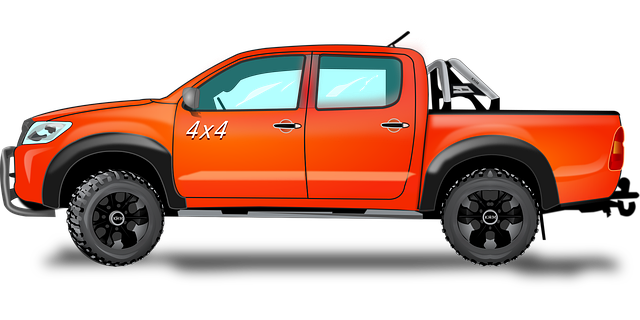Receiver hitches are crucial for safe towing and hauling, connecting vehicles to trailers with a secure ball mount socket. Proper installation and maintenance are vital for safety, legality, and smooth cargo transport. Brownsville truck owners should be aware of common steering issues like drift or noise, requiring regular maintenance and expert diagnostics for repair. Well-maintained receiver hitches improve truck handling, stability, and safety when towing, especially in diverse road conditions, with the right hitch class matching vehicle capabilities to prevent accidents and damage.
“Unleash your truck’s full potential with a receiver hitch—a versatile accessory enhancing both performance and functionality. This comprehensive guide delves into the heart of receiver hitches, offering a basic understanding for beginners. We explore common issues plaguing Brownsville Truck steering, providing practical solutions for optimal driving experience.
Discover how these hitches contribute to safety and performance, and learn the art of selecting the perfect fit with our buyer’s guide. From troubleshooting to expert advice, master the world of receiver hitches and elevate your trucking journey.”
- Understanding Receiver Hitches: A Basic Overview
- Common Issues with Brownsville Truck Steering and Their Solutions
- The Role of Receiver Hitches in Truck Safety and Performance
- Choosing the Right Receiver Hitch for Your Truck: A Buyer's Guide
Understanding Receiver Hitches: A Basic Overview

Receiver hitches are an essential component of towing and hauling systems, allowing for secure attachment between a vehicle and trailer or caravan. At its core, a receiver hitch is a metal device installed in the bed of a truck or SUV, featuring a socket or tube that accommodates a ball mount attached to the trailer. This simple yet robust mechanism facilitates the safe transport of various cargoes, from small trailers to heavy-duty equipment.
For those in need of reliable truck steering repair services, such as those available in Brownsville, understanding receiver hitches is crucial. Proper installation and maintenance of these hitches ensure not only the safety of your vehicle and trailer but also comply with local regulations for towing. Whether you’re a seasoned hauler or a first-time trailer owner, knowing the basics of receiver hitches can go a long way in ensuring smooth and worry-free hauling experiences.
Common Issues with Brownsville Truck Steering and Their Solutions

Brownsville truck steering often encounters issues that can compromise driving safety and comfort. A common problem is steering drift, where the wheel may wander to one side, indicating worn or damaged steering components. This can be resolved by inspecting and replacing faulty power steering pumps, rack and pinion gears, or tie rod ends. Another frequent concern is excessive steering noise, ranging from clicking sounds to squeaking and grinding, which may signal a problem with the steering gear or ball joints. Regular maintenance, including lubricating parts and tightening connections, can prevent these noises.
For effective Brownsville truck steering repair, identifying the root cause of problems is key. Visual inspections, vibration tests, and computer diagnostics can pinpoint faulty parts. Once diagnosed, solutions range from simple replacements like tie rod ends to more complex procedures such as steering gear repairs or entire power steering system overhauls. Timely addressing these issues ensures optimal vehicle control and drivesafe conditions.
The Role of Receiver Hitches in Truck Safety and Performance

Receiver hitches play a critical role in ensuring the safety and performance of trucks, especially those used for hauling heavy loads or towing trailers. These components are an essential part of the truck’s steering system, enabling smooth and stable control while carrying additional weight. In Brownsville Truck steering repair services, experts emphasize that a well-maintained receiver hitch is vital for preventing accidents and maintaining optimal driving dynamics.
When properly installed and regularly inspected, receiver hitches distribute the load evenly across the truck’s chassis, enhancing stability and handling. This is particularly important when navigating tight turns or driving at high speeds with a trailer in tow. By allowing the truck to steer accurately and react swiftly, these hitches contribute to safer operations, reducing the risk of rollovers or collisions, especially in challenging road conditions.
Choosing the Right Receiver Hitch for Your Truck: A Buyer's Guide

When selecting a receiver hitch for your truck, it’s crucial to consider your specific needs and vehicle type. Different trucks have varying bed sizes and clearances, so measuring your truck’s bed width and ensuring compatibility with your desired trailer or accessory is essential. A common mistake is choosing an undersized or oversize hitch, which can compromise stability and safety.
Brownville Truck steering repair professionals recommend assessing the weight capacity requirements of your intended load. Receiver hitches come in various classes, from lightweight models suitable for small trailers to heavy-duty options designed for substantial loads. Matching the hitch’s strength and size with your truck’s capabilities ensures a secure attachment and prevents potential damage or accidents.
In conclusion, receiver hitches play a pivotal role in enhancing truck safety and performance. Understanding their function, especially in the context of Brownsville truck steering repair, is essential for any vehicle owner. By selecting the right hitch based on specific needs, you can ensure better towing capabilities, smoother steering, and long-lasting durability. This buyer’s guide aims to empower individuals with the knowledge to make informed decisions when choosing receiver hitches, ultimately enhancing their trucking experience.



